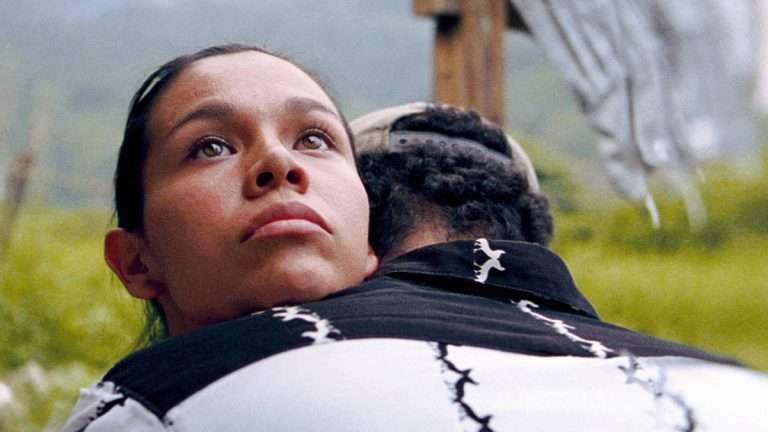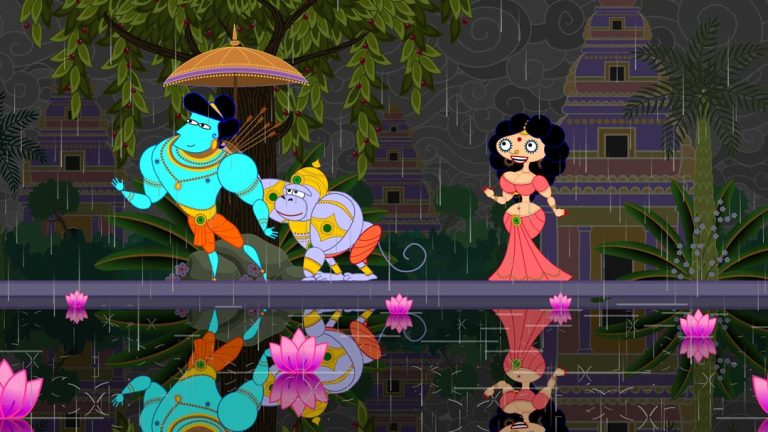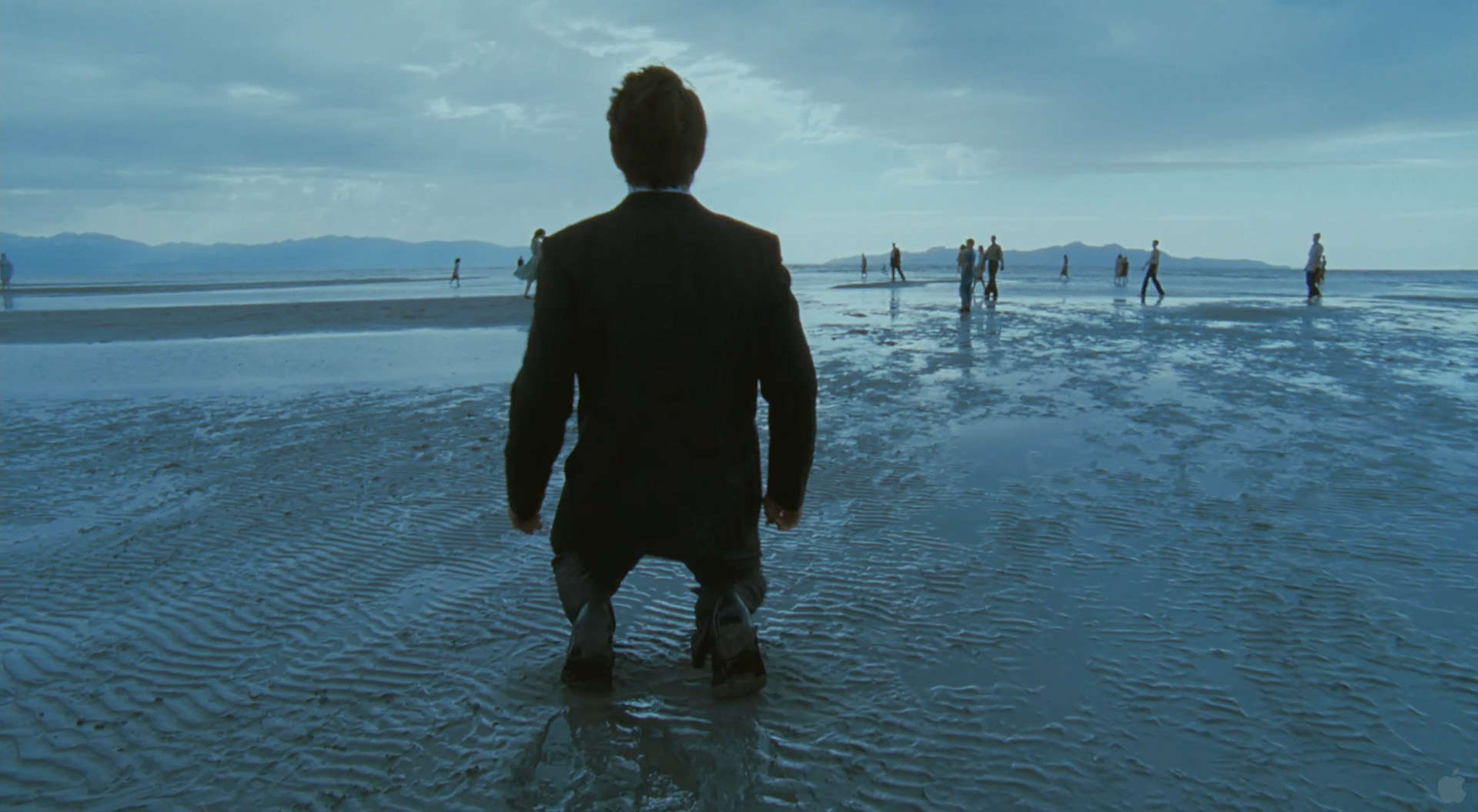The Eternal Daughter (2022) Essay: A mysterious night mist swirls through Joanna Hogg’s sorrowfully sheltered ‘The Eternal Daughter.’ Creating a cozy discomfort, this film has mixed reviews, with many points of continuous connections and disconnections. Even so, the non-linear storyline and excellent use of characters and props to depict the characters’ inner feelings were done magnificently well.
The symbolism of the haunted house representing the protagonist’s current mental state and the characters surrounding it has a pinch of the protagonist in each of them, for someone like Bill (Joseph Mydell) represents someone the protagonist Julie (Linda Swinton) hankering to be, the women in the window foreshadowing her emotions while the empty hotel representing her loneliness. Julie and Rosalind’s relationship is performed by the same actress who portrays her aspirations as we see ourselves in our parents. Joana Hogg’s ‘The Eternal Daughter’ (2022) is a small molecule of film, brittle, still fragile knowing its place in the garden of thick frogs surrounding it.
With Swinton in charge of words, The Eternal Daughter plays a cool trick by luring the audience, mounting them on the top, and snatching the carpet beneath their feet. You are not alone if you still wonder what happened at the end of the film and the reason for such a hypnotic climax. In this essay, we will try to dig deep into the director’s style and the psychological side of the characters.
The movie opens as we visit Julie and her mother Rosalind, both played by Tilda Swinton arrive in the old gothic style crafted Moen Famman Hall with their faithful dog Louis. She is already well aware of the sinister nature of the place and the unanimous older women peeping from the windows as the cab driver warns her. She just casually neglects the driver and is eager to return to the place with her mother, as this is where her mother spent most of her life. It was her house which was later transformed into a hotel.
As she enters the hotel, greeting the receptionist (Carly-Sophia Davies), she enquires about the room reservation she made. But to her surprise, there is no booking done in her name. The receptionist offers her a room by the fringes even though it is clear that there is no one in the entire hotel, and she could have easily got whichever room she wanted. But Julie and Rosalind just settle with the room allotted and get in to rest as it is nighttime.
Before getting to bed, Julie peeps out the window to see the receptionist leaving for home in someone’s car, probably her boyfriend. But the whole night, Julie is unable to sleep as the window makes a cracking noise sensing someone’s presence in there. This was scary, but Julie just ignored it and went back to sleep. Since the receptionist has left, she still has an entire night to pass.
Rosalind is sound asleep. The following day she complains about the noises and is ready to have lunch with Rosalind, which reveals her being a filmmaker who wants to make a film about the mother-daughter relationship. Rosalind slowly starts revealing the bitter-sweet memories that stayed with her, now reemerging with the house’s walls. Julie records all her conversations. Besides that, Julie is here to reestablish the relationship with her mother and celebrate her birthday at Rosalind’s favorite place, the hotel. Yet more often than that, she is lured by the internal fears she is facing, and according to her, spending some time with her mother might help her recover from writer’s block.
The director’s take regarding the storytelling approach has been precisely placed as the story has few complexities and a minimal base to build a story. But battling all these, the director has been successful in keeping the excitement regarding the construct and end of the story by constantly throwing foreshadowing signs about the climax. This is somewhat of an experimental technique in the direction field, and it seems to have worked well over here.
The Eternal Daughter (2022) hereafter focuses on imitating the tiny yet intimate conflicts. It cleverly represents what is happening with the protagonist and in her mind with the help of props. It cleverly tries to convey that horror doesn’t always reside in the world around us but is mainly created by our mind’s empty and lonely spaces, which need to be opened and explored rather than letting it go unnoticed only to suffer the causes. The director Hogg has done clever work by shading the movie with darker layers and keeping the background as heavy as possible, depicting the darkness Julie created all by herself and still blaming her mother for the same.

This blame game doesn’t help Julie but also constantly frustrates her. In the end, when we notice Julie’s hallucinations and Rosalind’s not being there physically all the time, it is her ghost, or we can say Julie’s hallucinations that Julie carries to cover up her insecurities. It pretty much sums up the trauma and frustration she has been going through. Also, it makes us comprehend the rude and cold behavior of the receptionist, who was also a head server for the hotel, as she saw no one to bring a surprise cake for and only saw Julie ordering two plates and talking to herself.
Also, the use of camera moments gives a great sense of reality, hitting the viewers through the screen and putting in proper visual exposition. This creates a visual as well as an emotional connection with the audience as they are precisely shown what they need to see for the moment, and the sense of questioning gradually develops in them. The camera movements have undoubtedly been precise as the film creates a sense of assimilation, and the audience feels like walking along with the characters.
But at the same time, we notice that Bill is something different. Even though he is fully aware of the situation, he carefully handles Julie’s behaviors. He does not find it weird as he is living off the memories of his deceased wife’s memories, and that might be the reason that Julie feels more comfortable when he is around, as he understands and lets her take her own time with whatever she is going through. This eventually led to Julie getting cured of her hallucinations and getting herself together to lead a life with a new beginning. Her new beginning is deftly displayed as she picks up writing again and produces what appears to be a novel while overcoming writer’s block and growing irritation.
Every character in the story is encountering some kind of psychological conflict, and the amount of external conflicts provided is zero. In contrast, the characters around are constantly fighting against some or the other kind of inner devil. The movie’s most representative example of the harsh psychological conflict is the protagonist, Julie herself. She is constantly surrounded by the illusions created by her mind, which is what shapes her world. It might be truth or an illusion that the worldview she has created is her reality which she has to fight out.
This is the lead cause for the want of the character. At the very beginning, the character’s wants for Julie are pretty clear and straightforward; she has to make a film about her mother and her experiences. She does take the necessary steps to achieve her wants. Still, as the story progresses, we can see that her external wants are way less than that of her internal ones. This gives a sense of appositeness as every person in the audience is dealing with some or the other psychological conflict, which is showcased to its exaggerated form.
Coming down to the character of Rosalind, this character is considered an illusion but has a lot in store for us. The character lacks any significant external or internal wants, so the actions taken for the same are fewer. But at the same time, the show was burdened with the guilt of not being able to establish strong family relations. As this character is a hallucination, it is a facade of the fear of imperfections and the psychological delusions Julie has created for herself.
Bill might be a compelling and mysterious character to look for in the story, as his character has a lot of layers to unfold. However, Bill does not have any defined character arc or want but is still in constant action toward unidentified wants. This character slowly emerges into the story and leaves the screen with multiple unanswered questions from the audience. Having a pretty convincing backstory, which also acts as a reason why he has been in the hotel for the last 30 years. But at the same time, he is not noticed by the receptionist, and at the same time, he does show up with the necessary hospitality work.
This raises the eyebrows of the audience regarding him. Many claim him to be a ghost, while others back him to having a physical appearance but being able to see and sense the metaphysical complexities, which is the foremost reason for Julie to find comfort around him.
The psychological conflict keeps on pulling up, and the characters take constant actions to overcome it. The imperfect behavior and wrong decisions made by the characters have shaped the story all along, eventually giving it feelings of warmth. The 96-minute stretch of the story is about a conversation between two women at very different times, negotiating their love for one another and their emotions simultaneously, especially depicting an honest dialogue between mother and daughter and reaching some kind of catharsis around the pain of separating mortally.





![Saf [2018]: ‘TIFF’ Review – Morality Tested Under Economic Uncertainty](https://79468c92.delivery.rocketcdn.me/wp-content/uploads/2018/09/SAF_0HERO-768x384.jpg)
